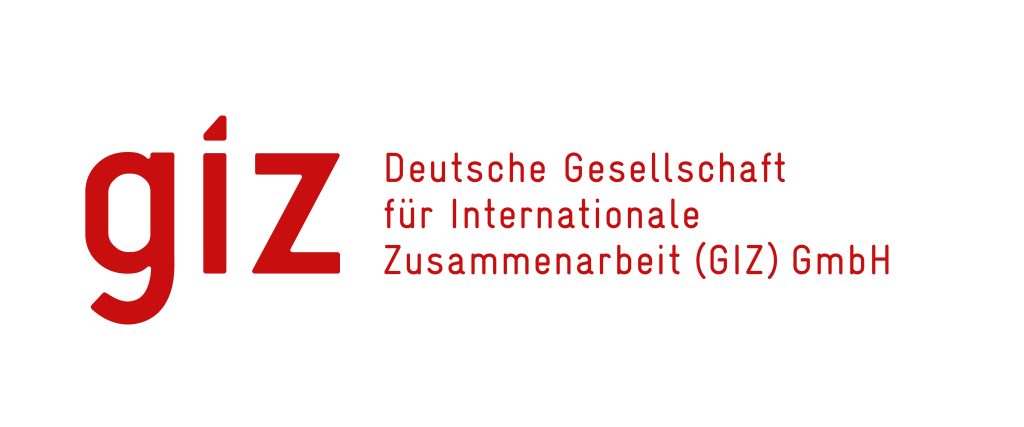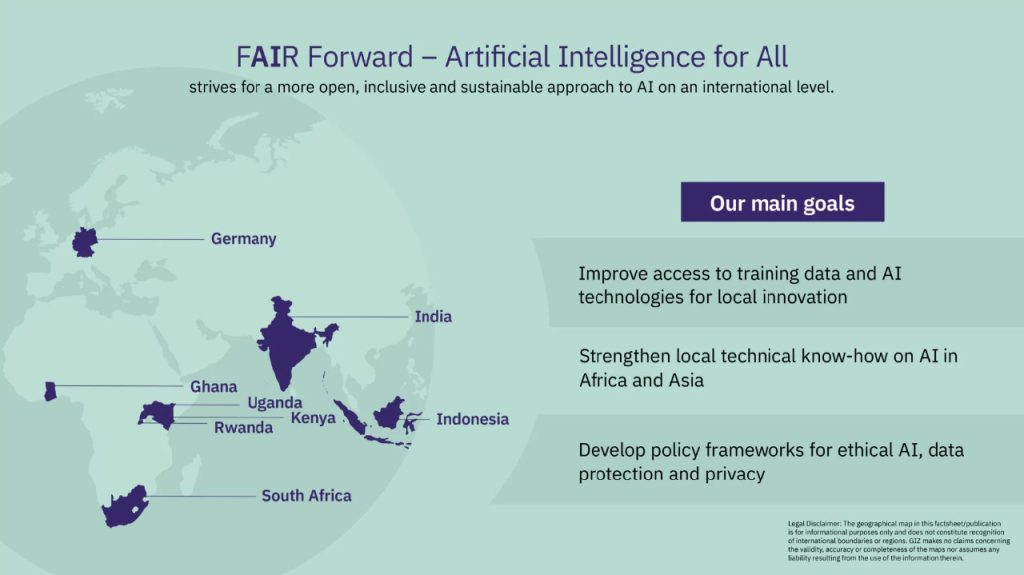As part of the study on international experience in the digitalisation of public services in African countries, a research fellow of the Center for African Studies of HSE University in Moscow, Russia, prepared an overview of the projects of GIZ.
The German Agency for International Cooperation (The Deutsche Gesellschaft für Internationale Zusammenarbeit), often referred to as GIZ, is the main German development agency established in 2011.
Its main aim is to support the German government in implementing its development policies and reaching its international cooperation goals. GIZ is divided into six business areas, including sustainable economic development, governance and democracy. GIZ invests in promoting digital innovations in more than 200 international cooperation projects and works closely together with the Federal Ministry of Economic Cooperation and Development (BMZ) to establish digitalisation as a quality feature and to develop transformative digital initiatives. GIZ’s main role in e-projects in Africa is to compile frameworks, attract investors, and provide technical and financial advice to member country states.

Projects in Africa
GIZ carries out a range of projects under the auspices of BMZ.
Make-IT in Africa
Make-IT in Africa promotes digital innovation for sustainable and inclusive development in Sub-Saharan Africa. GIZ GmbH implements this project on behalf of the BMZ as part of BMZ’s Digital Africa Initiative.
Make-IT in Africa strives to strengthen African innovation ecosystems in three areas: start-ups, promoting innovation and the political environment. GIZ implemented pitching events to promote the exposure of tech start-ups to investors through roadshows, presentations and direct contacts (in 2019, 210 start-ups had the opportunity to pitch in front of investors, raising more than US $1.9 million). Besides, GIZ leverages sector investments made by corporate partners while investing in tech hubs, that will further the competencies and capacity of start-ups through acceleration programmes. In 2017-2018, the project focused on Kenya and Nigeria serving as the point of contact for ecosystem stakeholders wishing to collaborate with the Make-IT Alliance. Since 2019, Make-IT has supported tech entrepreneurs from more than 18 African countries.
Project duration
2020 – 2024
Funding
The project is co-funded by the European Commission.
Cooperation with Smart Africa
Smart Africa is an alliance of 30 African heads of state and government that aims to take advantage of affordable access to broadband and the use of information and communication technologies (ICT) in Africa to establish a knowledge economy. The goal of the alliance is to develop a single digital market on the African continent by 2030.
The Federal Ministry for Economic Cooperation and Development (BMZ) maintains close ties with Smart Africa. In May 2019, the German Chancellor’s Personal Representative for Africa and the Representative for Africa in the BMZ, Günter Nooke, together with Lacina Koné signed a joint declaration of intent that marked the starting point for closer cooperation with Smart Africa in the area of digitalisation.
The BMZ and the Smart Africa alliance were able to reach agreement on seven fields of action with the aim of supporting digitalisation on the African continent including e-commerce and e-Government.
On April 28, 2021, the BMZ and Smart Africa reaffirmed their strategic partnership by signing the second declaration.
Stakeholders
Stakeholders of the project are the African Union Commission (AUC), the United Nations Development Programme (UNDP), the International Telecommunication Union (ITU), and the World Bank.
Digital projects
GIZ works on a variety of projects in the area of E-Government.
Digital identity: the cooperation targets the establishment of pilot projects for an interoperable digital identity system in the Smart Africa member states (overall 30 African countries). In 2020, GIZ, as a member of the Smart Africa digital identity working group, took part in creating the Blueprint for the implementation of a digital identity system (among other participants are the World Bank, Cybernetica, the International Telecommunications Union (ITU), and the GSM Association).
Digital solutions for sustainable development: GIZ assists African member states in developing technology-based services, for instance, in Rwanda, the institutional and capacity development is supported by GIZ through expert advice to inform policies, building capacity to implement line ministries’ ICT strategies and mentorship, which is expressed in educational trips.
TruBudget: with funds allocated by Germany’s KfW Development Bank, GIZ developed the Trusted Budget Expenditure software. The software mirrors specific workflow processes of project planning and implementation and allows for real-time information to be shared among the users engaged in a project or programme’s development. Since 2019, TruBudget is available to the general public and now is used in practice in Ethiopia and Burkina Faso.
Data 4 Africa
The BMZ and Smart Africa support the development of political initiatives that promote local data markets and the use of artificial intelligence for national and continental digital solutions through the “FAIR Forward” initiative launched in 2019. The declared role of GIZ is to assist in developing young start-ups that are connected to the fields of AI (for example, UN Global Pulse – a project that promotes the application of AI for sustainable development – in collaboration with GIZ developed roadmap report “Developing Framework for Ethical AI: Roadmap Options for Uganda” )

GovStack
Launched in 2020, GovStack is a multi-stakeholder initiative led by GIZ, Estonia, the International Telecommunication Union (ITU), and the Digital Impact Alliance (DIAL). The collaboration is creating a model platform for digital government services that identifies elements of reuse across services and sectors. BMZ works in the main areas:
Digital government strategy. The project enables partners to integrate building blocks into existing strategies. By doing so, it identifies the most pressing needs and conducts the strategic, technical, and regulatory prerequisites for specific, prioritised e-government use cases.
Technical design of e-services & prototyping. Prototyping of services is expected to be carried out in the GovStack sandbox environment.
African-European Digital Innovation Bridge (AEDIB)
The project was launched under the initiative of the EU Member States (France, Belgium, and Germany) and the European Commission to the EU’s Digital 4 Development project (D4D). It is funded under the European Commission’s Horizon 2020 program and coordinated by GIZ in Germany.
ATINGI
The digital learning platform launched by BMZ in 2019 provides people in the partner countries of the German development cooperation with the knowledge modules, orientation offers and learning materials that are expected to be needed locally and to fit the economic and cultural needs. ATINGI has reached over eleven million people in the partner countries that work with German development cooperation. On the platform, more than 700,000 users have completed over 600,000 learning units.
DataCipation
The programme strives to support African Union Organs in their quest to intensify citizen engagement and the role of data and digital approaches in their initiatives. The programme is implemented in cooperation with the African Union Commission and the AU Development Agency (AUDA-NEPAD). The GIZ DataCipation project is supposed to contribute to this multistakeholder process by providing technical assistance as a member of frameworks’ development task force that was set up by the African Union Commission.
Project duration
2020 – 2023
Funding
The project is funded by the German Federal Ministry for Economic Cooperation and Development (BMZ).
E-projects in African countries
GenerationDigital! – Supporting Digital Skills for the Next Generation
The proclaimed mission of the project is to attract education stakeholders in digital ecosystems. The work of GenerationDigital! comprises providing technical and financial expert advice. So far, GIZ has compiled a guide that provides detailed information related to various technical issues.
Project duration
2022 – 2024
Funding
The project is funded by the German Federal Ministry for Economic Cooperation and Development (BMZ).
BACKUP Initiative – Education in Africa
The German BACKUP Initiative – Education in Africa is declared to support African countries (overall, 8 countries) by implementing digital solutions to improve the quality and continuity of education, especially in the context of the COVID-19 pandemic. BACKUP Education supports applicant countries in preparing various contractual documents necessary to apply for the Global programme on Education (GPE). Based on the GPE funding mechanism, GIZ targets to promote girls’ education. A total of 30 countries, predominantly from Africa (including Botswana, Burundi, Malawi etc.), are eligible to apply for this special grant.
Project duration
2022 – 2025
Funding
The project is funded by the German Federal Ministry for Economic Cooperation and Development (BMZ) and the European Union (EU).
In 2022, GIZ published an evaluation report on the digitalisation for development. Among other e-projects, projects implemented in Africa took an important place. For instance, GIZ developed a health care e-register app in Malawi where 10.000 patients completed online registration. In Ghana the Citizen EYE app that allows citizens to provide feedback on public services was implemented by GIZ. However, part of the population, primarily habitants of the rural areas, is excluded from using the app due to their lack of access to the internet or a smartphone.
Author:
Sofya Alypova
